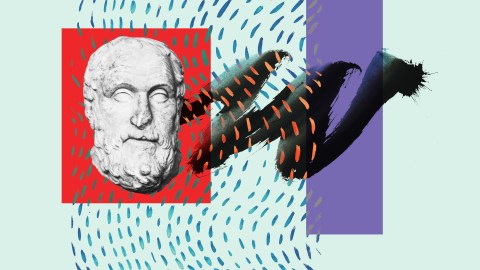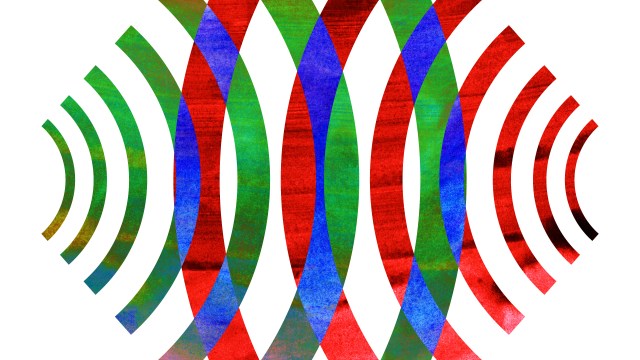Skepticism: Why critical thinking makes you smarter

- Questioning personal beliefs is a key part of intellectual growth.
- Various strategies like coherentism, falsification, gradualism, and pragmatism offer unique ways to scrutinize beliefs.
- Still, it’s important to balance skepticism with an understanding of the significant, sometimes beneficial, role that deeply held beliefs can play in people’s lives.
One of the most important questions anyone can ask themselves is, “Could I be wrong?” It’s not an easy question. It requires stepping back and looking at yourself as objectively as you can. The French philosopher Rene Descartes once wrote, “In order to seek truth, it is necessary once in the course of our life to doubt, as far as possible, all things.”
Sometimes you need to doubt yourself and engage your critical faculties. Big Think has interviewed some of the world’s most interesting thinkers on how skepticism and critical thinking can make you smarter. Here are a handful of the insights we learned.
Lawrence Krauss: The coherentist
In your mind, right now, there is a tight mesh of beliefs. It’s like a jigsaw, and all the pieces are coming together to form some kind of picture — your worldview. That jigsaw will be unique to you, and the pieces will be the individual beliefs you hold. But the jigsaw is not complete, and the world is constantly throwing new pieces — new beliefs — at you. The question becomes: Does this new piece fit into my jigsaw? “[If not, then] there’s probably a good reason to be skeptical about it; it’s probably wrong,” says physicist Lawrence Krauss.
Coherentism, in philosophy, is the idea that we are justified in believing things if they cohere with our other beliefs. It says that if some new information agrees with our worldview or the overwhelming weight of our previous belief, then we’re okay to believe it. Anything that jars or seems wonky should be challenged. What Krauss is saying sounds a lot like Coherentism.
But this doesn’t mean that we should reject anything that disagrees with our beliefs. In fact, to do so sounds a lot like closed-minded fanaticism. You sometimes have to make room for new beliefs, which may require the uncomfortable work of modifying your worldview.
Michael Shermer: The falsifier
Shermer has a good eye for our times, often taking a close and nuanced look at the mechanisms behind fake news, conspiracy theories, and echo chambers. In such a world, it’s easy to be guilty of confirmation bias, which occurs when we give undeserved preference to points that match what we already believe. That’s fine sometimes. But we also need to be careful that we are not completely shutting out alternative points. As the ancient Greek Skeptics argued, every point will have its opponent. Every thesis has an antithesis.
For Shermer (and for Skeptics like Sextus Empiricus), we ought to hunt out and relish challenges to our beliefs. As Shermer puts it, “The only way to find out if you’re deceiving yourself or not…is to listen to other people who disagree with you.”
Sometimes, though, people hold beliefs that allow for no possible alternative. They believe things that cannot be falsified by any evidence. In these unfalsifiable positions, Shermer says we’re dealing with “baloney.” Unfalsifiable beliefs are the end of rational debate. People who will never face a contrary opinion or recognize a rival position don’t care about truth. They care only about being right. Talking to these people will dissolve into little more than “my opinion versus your opinion,” Shermer says, “and we shout at each other.”
Shermer suggests that you should recognize that most of your beliefs will have their critics. Almost all of your beliefs could be falsified. So, do not run from your rivals but recognize their legitimacy, and take them on.
Bill Nye: The gradualist
Both philosophers and scientists can be guilty of over-selling the power of their arguments. It’s thought that if you show someone a logical conclusion, or present them with undeniable data, they will capitulate there and then and congratulate you on your intellect. But as Aristotle recognized over 2,000 years ago, humans are only partially (and often weakly) persuaded by rational argument. Logos, the power of argument, can sway people’s opinions. But so too will ethos (the reputation and weight of the speaker) and pathos (the emotional resonance of the argument).
For Bill Nye, if “somebody has a worldview that’s inconsistent with evidence, and I may have some, it [will] take a while for you to turn around.” Our beliefs are not stickers, lightly glued to the backs of our hands. They are deeply rooted and central to everything we do. And, like deep roots, you cannot simply yank them up. You need to dig and dig to get at them. Nye said, “It takes people a couple years to change their mind. So, my recommendation [for anyone trying to present evidence], is to stick with it.”
Derren Brown: The pragmatist
The illusionist Derren Brown suggests we need skepticism toward skepticism itself. Our beliefs and worldviews shape our lives and define our identities. Thus, challenging these beliefs requires a careful approach. Simply being antagonistic can be both naïve, as beliefs aren’t easily changed, and potentially harmful if overly aggressive.
As Brown puts it, even if someone “ends up with a thing that’s easy to knock down [you] can miss the fact that there’s something at the heart of it, which maybe is useful. Maybe those narratives around religion are useful to us psychologically.” People’s religious and ethical beliefs are not superficial froth. They matter a lot. If someone turns to a psychic because they’re grieving, or they use fortune tellers because they’re terrified of death, then it’s both cruel and dangerous to swipe away at those crutches.
You might argue that those crutches are unhealthy or that some beliefs are ridiculous. But sometimes that’s not for you to decide. For Brown, we should ask why someone believes a thing before we jump to take it away.





